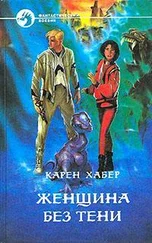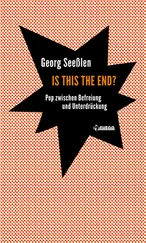Had Sofr not been a scholar, a very eminent Zartog, and had he been instead a member of the illiterate class, he should have had no trouble. The people, indeed, wasted no time in profound speculation. They were content to shut their eyes and repeat the old legend that had been transmitted, since time forgotten, from father to son. Explaining one mystery by another mystery, they traced the origin of man back to the interference of what they called a Higher Will. One day, this unearthly Power had created out of nothing, and for no apparent reason, Hedom and Hiva, the first man and first woman, whose descendents had peopled this world. Thus everything was linked up very simply. . . .
Much too simply! mused Sofr. When a man despairs of understanding something, it is all too easy to have a god intervene: this device makes it useless to seek solutions of the riddles of the universe, for it suppresses the problems as soon as they are stated.
If only there were a shred of support of the popular legend! But it rested upon nothing. It was only a tradition, born in times of ignorance, and thereafter handed down from one age to another. Why, even the name Hedom! What was the source of this fantastic word, of outlandish sound, that seemed foreign to the tongue of the Andarti-Iten-Schu ? Unnumbered scholars had worn themselves pale over just this little philological difficulty, and had found no satisfactory answer. Come, then! All this was idle stuff, unworthy of the attention of a Zartog.
Sofr went down, in something of a temper, to his garden, for the hour had come when it was his custom to go there. By now there was less fire in the rays of the declining sun, and a soft breeze was beginning to blow in from the Spone-Schu. The Zartog wandered along the paths, shaded by trees whose shivering leaves were set to whispering by the on-shore wind, and little by little his nerves found again their habitual poise. He could shake off his absorbing thought, calmly enjoy the fresh air, and inspect with interest the fruits, which were the wealth of his gardens, and the flowers, their ornaments.
His idle steps brought him by chance back toward his house, and he paused at the edge of a deep excavation, around which were scattered a number of tools. Therein would be laid, within a short time, the foundations of a new building that should double the size of his laboratory. But on this holiday the workmen had left their toil to take in the public games.
Sofr was absently sizing up the amount of work already done and of work still to be done, when, in the gloom of the excavation, a brilliant point caught his eye. Puzzled, he climbed down to the bottom of the hole and pulled a queer object out of the dirt three-quarters covering it.
Having climbed again into the light, the Zartog examined his find. It was some kind of case, with round ends, made of an unfamiliar metal, gray in color, granular in texture; its luster, dulled by the long time it had spent underground, gleamed only where it had been grazed by a workman’s pick. A slit one-third of the way down from the top indicated that it was made of two parts, one fitting into the other. Sofr tried to open it.
At his first attempt, the metal, corroded by time, fell into dust, revealing a second object that it had contained.
Its material was as new to the Zartog as the metal had been. It was a roll of large sheets peppered with strange marks of a regularity suggesting written characters—but forming an unknown script, of a kind that Sofr had never seen, nor even anything like it.
Trembling with excitement, the Zartog hastened to lock himself in his laboratory, and having spread out the precious document with care, he stood contemplating it.
Yes, it was some kind of handwriting; nothing could be more certain. But it was no less certain that the writing in no way resembled any that within historic times had been used anywhere on Earth.
WHENCE CAME THIS DOCUMENT? WHAT message did it carry? These two questions now occupied Sofr’s mind to the exclusion of all else.
To answer the first, he must be in a position to answer the second. The problem, then, was first of all to decipher the document and translate it—for it could be affirmed in advance that the language would be as unknown as the script.
Would this task prove impossible? The Zartog Sofr did not think so, and without delay he set eagerly to work.
That work took a long time—long, dull years, in fact. But Sofr kept tirelessly at it. Undiscouraged, he pursued his methodical study of the mysterious script, advancing step by step toward the light. Finally came a day when he discovered a remote likeness between this ancient tongue and the most archaic dialect of the Andarti-Iten-Schu, and he held the key to the puzzle; the day when, at last, with much hesitation, he could put the message into the tongue of the Men of the Four Seas.
Now, when that day came, the Zartog Sofr -Ai-Sr made out what follows.
Rosario, May 24, 19—
I DATE IN THIS FASHION the beginning of my recital, although in reality it is being written long after this date and in surroundings very different. Considering my theme and motive, order, to my mind, is imperatively necessary, and that is why I am adopting the form of a “journal” written from day to day.
On May 24, then, begins the recital of the horrible events that I intend to report here for the instruction of those who will come after me if ever again humanity can count upon any sort of future.
In what language shall I write? In English or Spanish, which I speak fluently? No! I shall write in the language of my own country: in French.
On this day, May 24, I was entertaining some friends in my villa near Rosario. Rosario is, or rather was, a Mexican city on the Pacific coast a little south of the Gulf of California. Some ten years previously I had installed myself there in order to direct the working of a silver mine that was entirely my own property. My affairs had prospered astonishingly. I was a rich man—the word makes me laugh aloud today!—and was planning to return in a short time to France, the land of my birth.
My villa, among the most luxurious, was situated at the upper end of an extensive garden that sloped down towards the sea and ended abruptly in a perpendicular cliff more than a hundred meters high. Behind my villa, the terrain continued to rise, and by a winding road one could reach the summit of a mountain range having an altitude exceeding fifteen hundred meters. It was an agreeable drive and I frequently made the ascension in my automobile, a superb and powerful double Phaeton, one of the best French makes.
It had been while living in Rosario with my son Jean, a handsome lad of twenty, that, upon the death of cousins distant in blood but dear to my heart, I had taken in their daughter Helene, left an orphan with no fortune. Since that time, five years had elapsed. My son Jean was now twenty-five; Helene, twenty. I secretly intended them for one another.
We were well served by my valet, Germain, Modeste Simonat, a most resourceful chauffeur, and two girls, Edith and Mary, daughters of my gardener, George Raleigh, and his wife Anna.
In the twilight of this day, May 24, eight of us were seated round my table in the soft light of electric lamps that drew their current from my own generators. In addition to the master of the house, his son, and his ward, there were five guests, of whom three were of the Anglo-Saxon race and two were natives of Mexico.
Doctor Bathurst was of the Anglo-Saxon group, and Doctor Moreno of the Mexican. The fact that the two were scientists in the widest sense of the word did not prevent them from being rarely in agreement. But they were gallant gentlemen, and the best friends in the world.
Читать дальше











